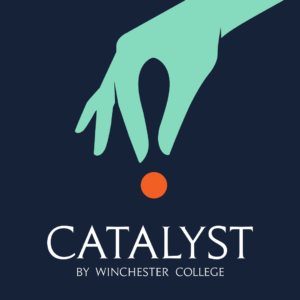13 Sep 2019 | Patrick Jiang

One of the most popular topics of discussion for US college admissions is the Early Decision/Early Action problem.
Briefly, for those who don’t know yet, there is an early application round in US college admissions, where you apply in November and get a decision in December. (The normal application round goes from January to April.) Some colleges follow “Early Decision,” where you are only allowed to apply early to one place, and you promise to go if accepted; others follow “Early Action,” where you are sometimes allowed to apply to more than one, and you don’t have to go if accepted.
So, students and parents will ask: Should they apply early? If so, where?
For most people, applying early seems to be a good idea. Colleges like early applications because they tend to show serious interest in them. A high proportion of early admissions can be expected to attend next year, and this all benefits the college in a variety of ways. Furthermore, the early applicant pool tends to be relatively strong, and it enjoys a much higher acceptance rate (e.g. more than doubled at most of the Ivy League).
Of course, applying early will put some extra burdens on you. You will not be able to use any SAT or school grades that come too late, so you will have to rely on strong performances before October. If you choose an Early Decision college, make sure that you are absolutely committed to the choice and that you will not regret it later if you are forced to go. You will need to finish your application two months earlier than otherwise, though this is not necessarily a bad thing. Even if your early application does not succeed, you will have gotten an excellent start on the regular applications. Some students choose to do an Early Action just to motivate themselves to get their applications done. That alone might be worth a lot.
Some people astutely observe that early admit rates are higher than regular admit rates, so they wonder if they can strategically improve their chances by using early applications. The answer is, maybe. As mentioned before, the early applicant pool is actually stronger than the regular applicant pool, especially at the most elite colleges. In that case, one would expect the admit rate to be higher, anyway. So, at the top levels, it’s not clear how much “easier” early applications are. However, if you consider slightly lower-ranked colleges — ones where your SAT and GPA would place you comfortably above average — you can actually improve your chances significantly. Those colleges place greater value on early applications, and being early will solidify an already viable application. Not everyone will be comfortable adopting this kind of strategy, especially since many of these colleges are Early Decision. You are potentially giving up the chance to apply anywhere else to bet on one application. However, it is a worthwhile wager for some some students, and if you think you might be one of them, it is worth discussing it with your counselor seriously.
Early application deadlines are tight, so it is not too soon to think about them now.
To find out more about Ampla Education’s and university application services, contact us at info@ampla-edu.com
_____________________________________________________________
Patrick graduated from MIT with a Bachelor in Biology. He went on the Cambridge-MIT Institute Exchange program while at MIT and completed a J.D. course at Boston University School of Law, followed by a LLM. at UCL. Patrick has worked as a lawyer for a few years before becoming an education consultant six years ago, providing counseling on US university and boarding school admissions.
______________________________________________________________
© Ampla Education – Unauthorised use of this material without permission is strictly prohibited. Excerpts and links may be used, provided that full credit is given to Ampla Education.



















